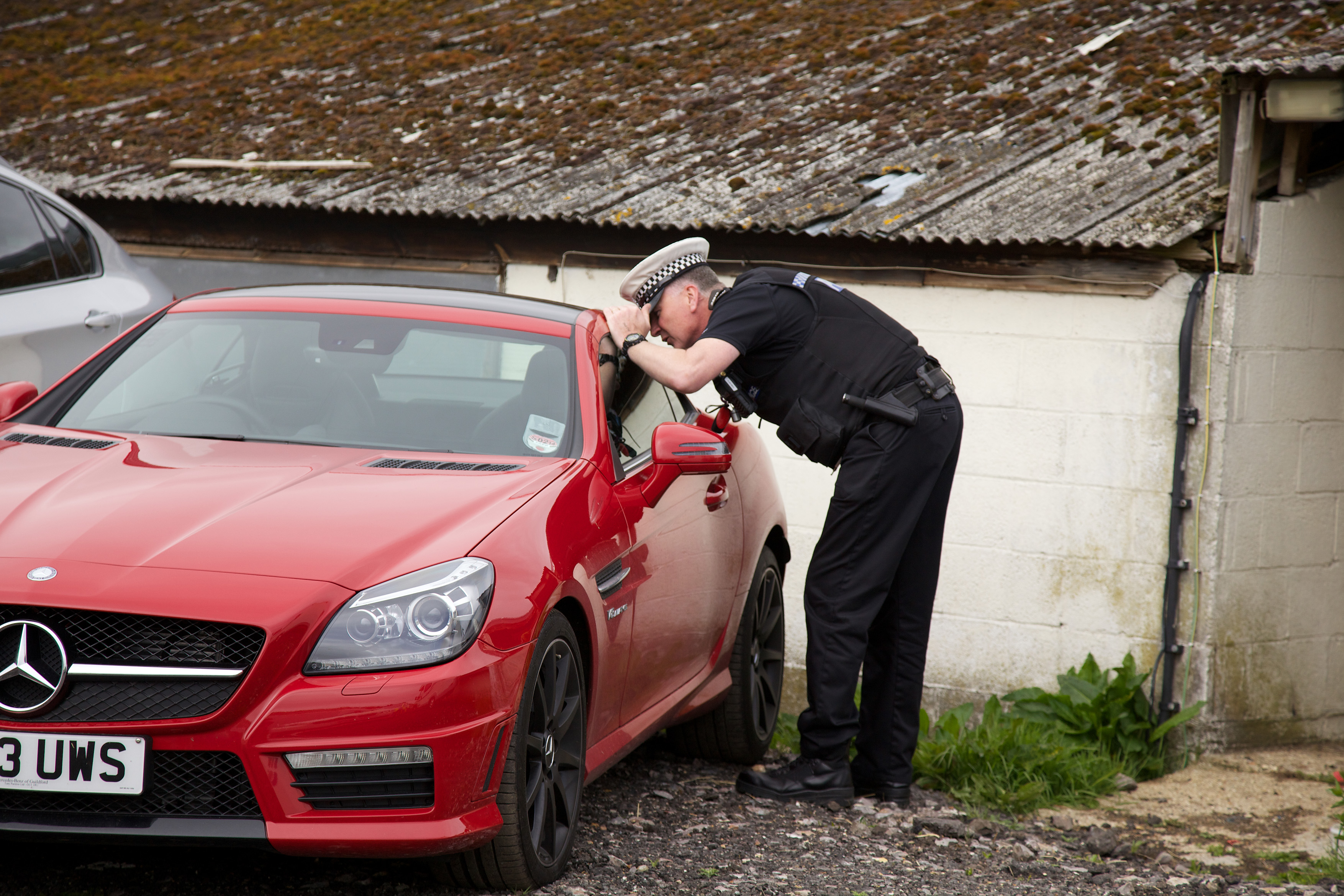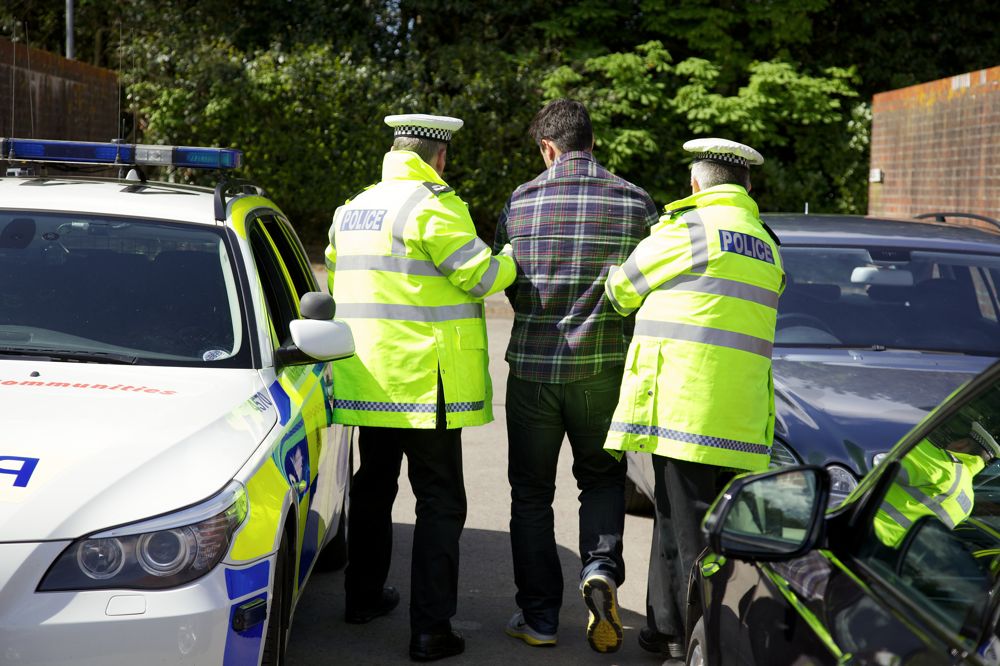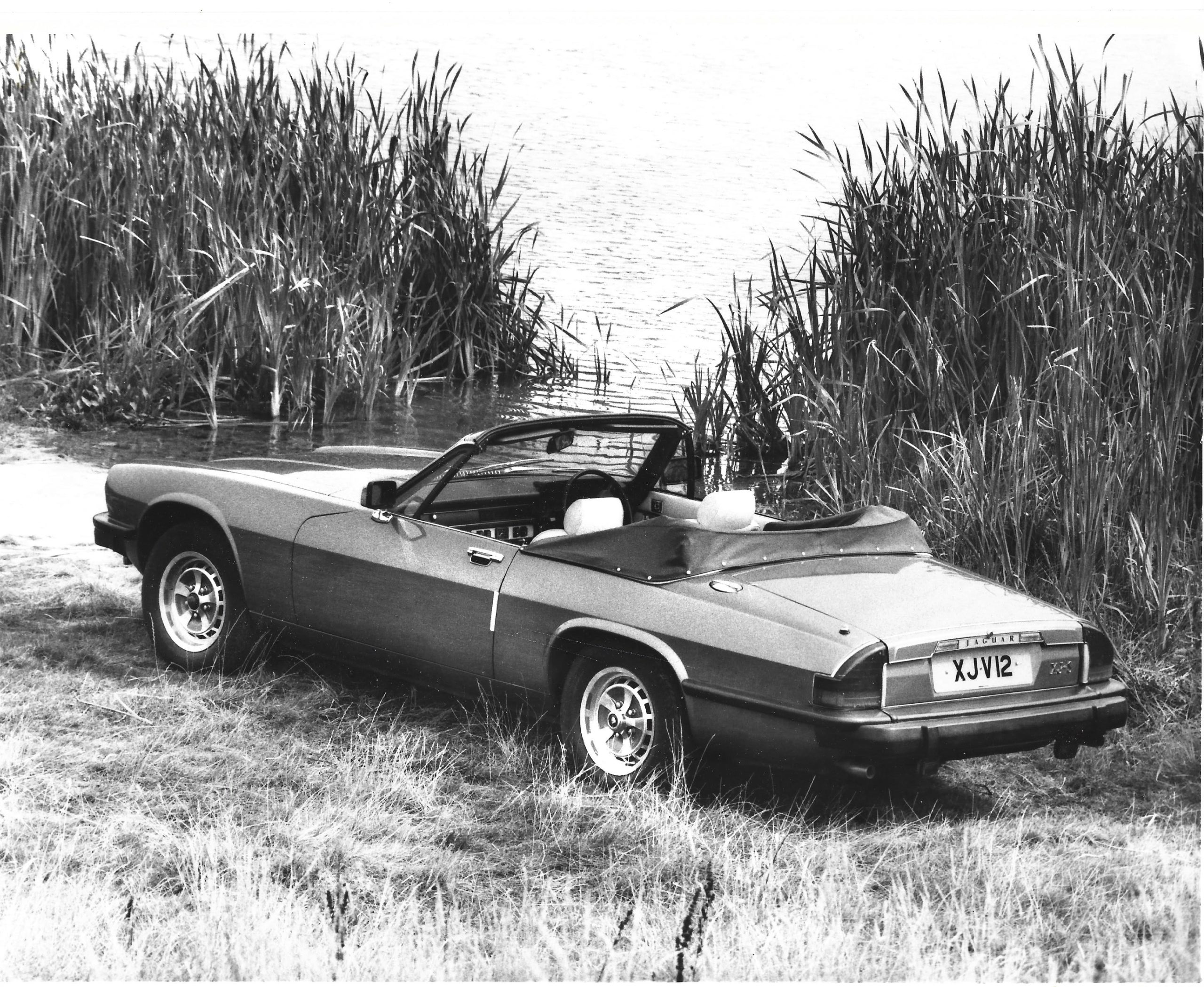Do you know where your car is? Are you sure? Car theft is on the increase, and it’s not just new Range Rovers and posh BMWs the criminals are targeting. As many will have seen across social media – where owners and clubs appeal for help recovering prized vehicles – classics are attractive to thieves as they aren’t protected by modern security systems and can easily have their identity changed. If they aren’t sold complete, there is a ready market for used parts from enthusiasts who might be unwittingly fuelling the trade in stolen cars.
As if that weren’t bad enough, we reported on the news that criminals are actively targeting valuable classic cars, sometimes stealing them to order, by attending car events and attaching electronic trackers to capture their prey.

We all have a part to play in preventing these criminals and can take measures to keep our classics safe, but what if a determined thief does manage to make off in your pride and joy? How can you maximise your chances of getting it back intact and maybe even bringing the thieves to justice? Tracking devices are designed mainly for modern cars, but they work just as well in classics, motorcycles and even caravans. They are generally described as trackers, although that actually is a brand name – just as Hoover is sometimes used to describe a vacuum cleaner.
They will help give you peace of mind and could lower your insurance premium. In fact, on some particularly valuable classics, insurers may insist you have a unit fitted. Hagerty spoke with Mike Briggs, a vehicle security consultant with more than 30 years’ experience, to find out what vehicle owners should look for and how tracking devices work.
My insurer has insisted I fit a tracker. What is involved?
If your insurer is insisting you fit a tracking device it can come down to a number of things. Your car may be particularly valuable or popular with thieves. It could also be because the place you store your car isn’t considered secure or a large number of people have access to the location. And of course there is the value of the vehicle, which can make it a target.
To keep your insurer happy you will need to have a suitable, approved device fitted by an installer who is able to provide the necessary proof of fitment documents. It’s worth getting a list of approved devices and fitters and double checking with both the installer and the insurer that they are going to be happy with any unit fitted to a vehicle.
Then you will need to have the device installed in your car either at a workshop or at home. It shouldn’t take more than a couple of hours. You will then provide the certificate to the insurer and they will either provide the discount or extend cover.
Tracking companies will require a subscription to provide the monitoring service too, so you’ll need to make sure that’s paid, or the service will cease and your cover could be invalidated.
What does ‘Thatcham approved’ mean?

Thatcham is the common name for the Motor Insurance Repair Research Centre, which is based in Thatcham, Berkshire. It is funded by the insurance industry and conducts independent tests on cars and security devices.
Strictly speaking Thatcham does not ‘approve’ devices; it does however provide certificates of conformity for these sort of products. Your tracker will need to have one of these before your insurer will accept it.
There are different levels of tracking device protection according to Thatcham’s scales – S7, S5 and S5 Plus. Your insurer may insist on a certain level depending on the type of car you own. You might also wish to upgrade to a higher grade for better protection.
What’s the difference between an S7, S5 and S5 Plus tracker?
These are the standards of protection recognised across the vehicle tracking industry. Confusingly, the S7 level is actually lower in its protection level than an S5. An S7 is the minimum level that an insurer is likely to ask you to meet when choosing a tracking device for your vehicle, and it replaces the old standard which was called CAT 7. If a car you buy has a certificate for CAT 7 device it will still be accepted as long as you register and take up a subscription.
Every S7 system will sense if a car is moved without the ignition being switched on or the battery is tampered with. An alert will be sent to a control centre who will try to contact you and guide the police to your car if necessary.
An S5 has the same features but adds an extra layer of protection with an extra key fob. If this is not in the car when it is started, the control centre will be alerted. This means you will have to keep it away from the car and preferably not on your keyring either.
The ultimate level is S5 Plus, which adds an entertaining ‘Anti-Hijack’ feature. If the police find a stolen car fitted with one of these devices they can instruct the tracking control room to immobilise the engine to prevent a getaway chase.
How much do trackers cost?
The cheapest Thatcham accredited tracking device we could find was £189, including fitting. Bear in mind that you will also need to pay a subscription for the monitoring. Some companies will allow you to pay monthly, others will want an upfront payment. If you intend to keep the car for a while, it is cheaper to buy three or even five years in advance. At a minimum, budget on about £130 per year or £300 for three years. At the other end of the scale, a top S5 Plus will be more than £600 and the subscription will be at least £200 per year.
Are trackers worth the money?
This depends on how worried you are about theft. On a high value car, a tracking device will bring extra peace of mind and may well save you the inconvenience of having your car disappear forever. And let’s face it, with classics, it’s not just an inconvenience. If a cherished vehicle that you have an emotional attachment to vanishes into thin air, it’s upsetting and there’s no way to replace it.
You can also use them to keep an eye on drivers who use your car, to see where they go and how they treat your car. However a tracking device won’t necessarily prevent your car from being stolen in the first place, so you will need to invest in physical security too. A simple steering wheel lock is often one of the most effective ways, with the likes of Disklok and Stoplock Pro recommended.
My car has a tracker fitted but I don’t have a subscription. Can it be switched on again?
Usually a tracking company will be very happy to revive a device for you if you take out a subscription. Just don’t expect them to do it after a car is stolen. They will occasionally make exceptions if the police request it, but only paying your subs when you really need their help is – understandably – not popular.
Do I have to buy an insurance-approved tracker?
If you want to get the insurance benefit, yes you will. But if your policy doesn’t insist on it there are plenty of other tracking devices you can install which will allow the movements of your car to be monitored. That might be because you want to protect it against theft or keep an eye on what drivers get up to in your vehicles.
They can also be really useful to track business mileages for expenses or simply remind you where your car is parked. Most have an app which will give you a live view and show previous journeys.
As they use a mobile phone network you’ll normally have to pay a subscription or simply slip in a pay-as-you-go SIM.
Can I fit a tracker myself?
If you are going to get the all-important certificate of fitment for an insurance-approved device, you are going to have to let a professional do it. Thatcham used to have a list of Recognised Installers, but this has now been discontinued and the technicians now only need relevant insurance, training and be DBS checked as a minimum standard. The Tracking and Aftermarket Security Systems Association has a list of installers.
You might know your car inside-out and be unwilling to let anyone else touch it, but in this case, you are going to have to let them, although any decent fitter will be happy to take advice if your car is a carefully-rebuilt classic.
If you aren’t so worried about the insurance and just want to keep an eye on your car then a tracking device is incredibly easy to fit. Some have rechargeable batteries which can last for days so can just be hidden when needed. Others connect directly to a 12v supply or can plug into an OBD socket if your car is modern enough to have one.
What happens if my car is stolen?

If you have an insurance-approved device the illegal movement will be detected, and the monitoring centre will try to get in touch with you to see if it’s authorised. If it’s not they will inform the police and tell them where the car is located.
If the thief tries to tamper with the device or disconnect the battery it will also alert the monitoring centre.
The police will then try and locate the car using guidance from the tracking company. On some devices a VHF signal is also used to guide in the police, who have special receivers fitted to their vehicles and aircraft.
Can I move a tracker from one vehicle to another?
Yes, an installer should be able to move a tracking device from one car to another if needed. But it will be at a cost.
Can a thief get around a tracker? What about jammers?
Criminals know that the sort of cars they are after are likely to have tracking devices fitted and will try and find a way around it. The most basic way of doing this is to park the car up for a few days and see if the police arrive to retrieve it.
More sophisticated thieves will use their own electronic devices to try and prevent the tracker from talking to the monitoring station. These are called jammers, and work to block the mobile data transmission, GPS receiver or both. The criminals will then find and remove the device.
If you want to avoid this, you’ll need to invest in a high-end tracking device such as a Tracker which has more than one way of communicating. Some devices will also detect if they are being jammed and switch networks to sound the alarm.
The other good news is that the jammers can now also be tracked. The police know there is no justifiable reason for having a device which blocks signals, so if they detect a jammer they know something fishy is going on. Weirdly, jamming equipment is illegal to use but not to own.
What happens if the car is put in a container or underground?
We alI know that there is very poor mobile phone reception in some areas, such as underground. Thieves know this and will store cars in these places in the hope they will not be electronically spotted – although they will have left a trail to the location, hopefully.
Some devices offer protection here too though by using another signal to transmit its location. This is usually VHF which is more resistant to jamming and can still pass through steel shipping containers and concrete walls.
With thanks to Mike Briggs, president of the International Association of Auto Theft Investigators. For more information about his skills, visit www.tassa.pro and www.vsst.co.uk









I have a tracker fitted to my classic, which I did a number of years ago myself. Not difficult and not really that expensive. Monitored 24-7 by GPSLive and a useful tool to revisit your journeys. Annual fee and alert texts are reasonable too. I also have DATATAG back up. Well worth all the expense for peace of mind, in my opinion.